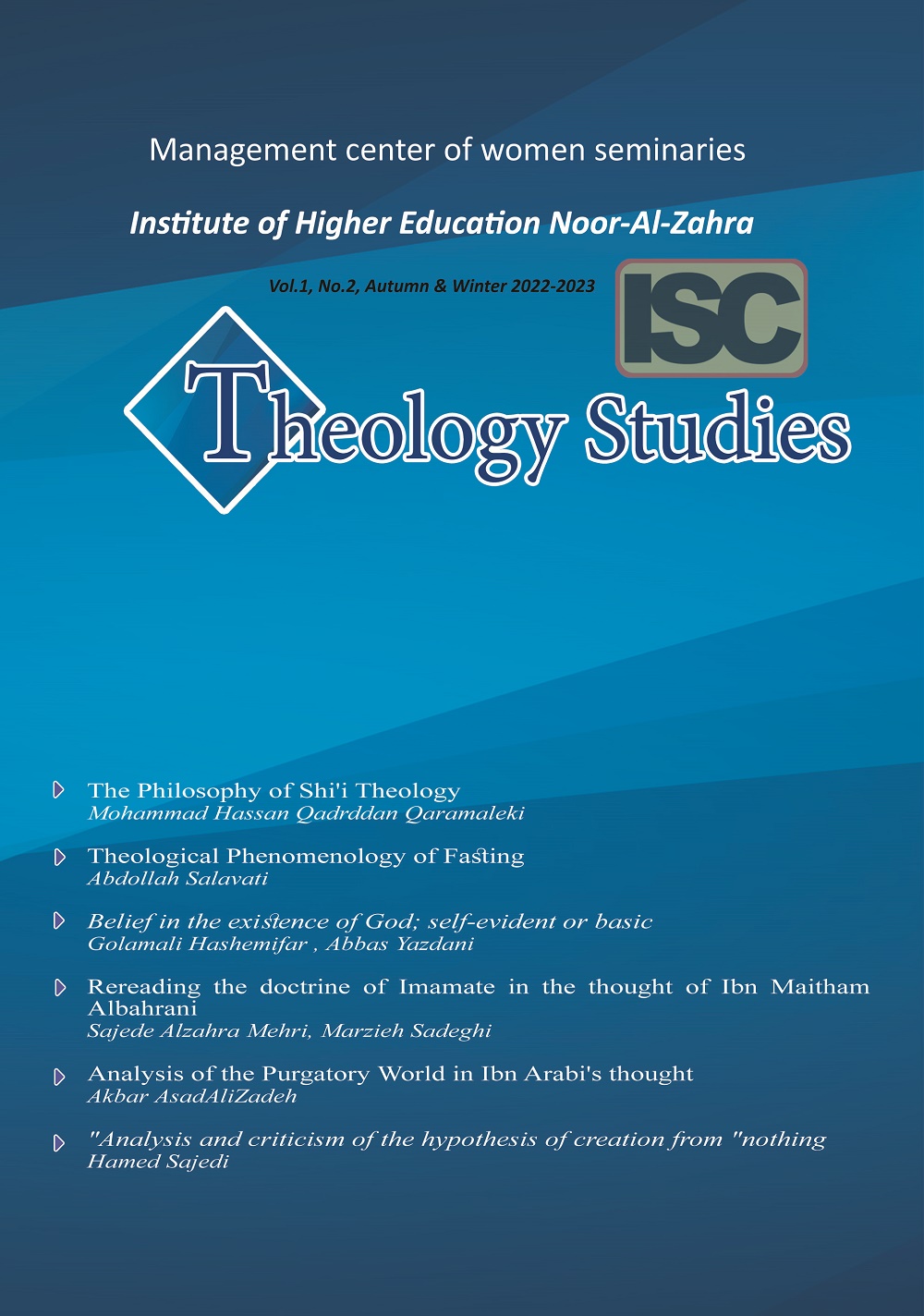Analytical-Critical Reading of the Definition of Imamate from the Perspective of the Imamiyyah
Document Type : Original Article
Authors
1 Scholar of the fourth level of Islamic theology of Qom seminary
2 PhD student of Islamic philosophy at Bagheral Uloom University
3 Graduated Level 2 Islamic Studies
Abstract
Imamate is one of the significant topics in the circle of Islamic thinking and according to the main Imamiyyah, it is one of the principles of religion in a way that the eternal happiness of man is tied to it. The topics of imamate can be discussed in three areas: "literal imamate", "legislative imamate" and "formative imamate". There is no difference between the Imamate in believing in the principle of Imamate, its examples, characteristics, and affairs; however, the definition of Islamic Imamate that has been acknowledged and addressed by most of the early and late Imamiyya theologians is accompanied by shortcomings, the most important of which is the lack of hindrance of non-Twelfth Imams and the lack of comprehensiveness of Imamiyya beliefs. As the three basic elements of Imamate, i.e. "infallibility", "knowledge" and "divine appointment" cannot be obtained from it, the Imam's affairs are reduced only to leadership. In this article, with the method of "descriptive-analytical criticism", the renowned definition has been evaluated in the form of six considerations, and finally, based on the requirements of reason and narrative evidence, the definition of "true guidance within the scope of the Divine Law" is defined with respect to comprehensiveness, hindrance, and brevity, to modify and complete the definition.
Keywords
Volume 1, Issue 2 - Serial Number 2
February 2023
- Receive Date: 30 January 2024
- Accept Date: 30 January 2024
- First Publish Date: 30 January 2024
